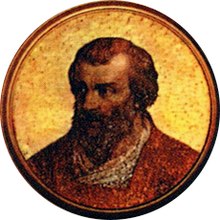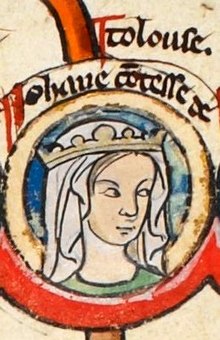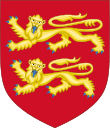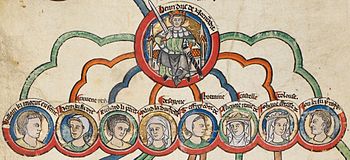Even a Lion’s heart must one day cease to beat!
Swinging London, and how the citizenry did cheer and the church bells ring!
Joyful at their king’s return, of blessed, brave Richard and his deeds, they did sing!

The streets of London were adorned with banners befitting the return of a king. Richard basked in the adulation of his subjects, but circumstances precluded a lengthy period of rest and relaxation. Due to the machinations of brother John, also known as John Lackland, some unfinished business remained. The treacherous younger sibling had placed some forces, loyal to his disloyal person, encamped in various castles throughout the realm
So John had left Richard some mopping up to do. The Lionheart had never baulked at getting his hands dirty and he approached the cleansing task with characteristic gusto and vigour. He would reassert his seal of approval over England.
King Richard’s Great Seal.

This is my royal seal,
‘Tis the only viable deal!
Submit to my will, get real!
If you resist, I will certainly let you know how I feel!
Well, Richard did, and there were more than a few hard feelings. A swift campaign in Cornwall and Nottingham cleared up the running sore created by brother John. At the latter venue, Nottingham castle, a large gallows was constructed in full view of the besieged, so that they could witness the death throes of their garrison colleagues unlucky enough to be captured by the Lionheart.
Swing high! Swing low!
You have upset me, now watch how things will go!
‘Tis a choice between rope or hope!
Get sense! Don’t be a dope!
The castle soon surrendered. This would not be the last time that Nottingham castle would feature as the scene of a royal power struggle. Richard’s strategy was successful and the entire realm was loyal once more. In order to drive the point home Richard, for the first time in English history, decided to have himself crowned for a second time. This time the coronation venue would be Winchester cathedral.
A second coronation!
This time without the first’s aggravation!
To leave no one in doubt as to who is supreme head of the English nation!

But what of brother John? He, known as John Lackland?
An understandably aggrieved Richard declared John’s lands forfeit and he was arraigned on a charge of treason in his absence. Brother John, of course, had decamped to Normandy as soon as he had heard of Richard’s imminent return. The Lionheart now decided to catch up with brother John and more importantly, ‘Disgusting Augustus’. The French king had invaded Normandy and Richard was determined to eject his nemesis with all possible speed. In May 1194, in the company of his mother, Eleanor, Richard landed at Barfleur in Normandy.
The arms of the port of Barfleur.

The prodigal brother John abandoned by Philip Augustus, presented himself to Richard and was immediately forgiven for past transgressions. Richard mounted a masterful and extremely energetic campaign against ‘Disgusting Augustus’. The French king was no match for Richard’s military ability and he soon beat a hasty retreat. Richard and Philip Augustus agreed an uneasy peace agreement, the Treaty of Louviers in January 1196. However, Richard resolved to take additional precautions to thwart any attempted incursion into Normandy from the French king.
The Lionheart decided to construct a huge castle high above the river Seine. The castle would guard the Seine valley route into Normandy. It was to be called Chateau Gaillard and it would incorporate the most up to date, sophisticated, defensive features of castle architecture and no expense was spared in its construction.

The castle was quite simply Richard’s pride and joy. Indeed, he would lovingly refer to it as his one year old child after its completion. Chateau Gaillard would be captured by ‘Disgusting Augustus’ in 1204 but that was years after Richard’s death when brother John Lackland sat on the throne.
The endgame!
What’s in a name?
The Lionheart’s enduring fame!
A large amount of gold believed to have dated from Roman times was discovered by a peasant on land held by Viscount Aymar of Limoges in the spring of 1199. Richard as Aymar’s overlord declared that the treasure was rightfully his. The impudent Aymar refused, but offered Richard half of the treasure trove as if he were dealing with a man of equal rank. To the Lionheart this was an act of inexcusable impertinence. Richard resolved to take possession of the gold and swiftly departed for the castle at Chalus where Aymar had deposited it. Laying siege to the sparsely defended castle, Richard was inspecting the progress of his sappers as they worked to undermine its fortifications. Reckless to the end, Richard ventured close without his chain mail and was struck with a crossbow in the shoulder. The wound turned gangrenous and Richard writhed in agony fully aware that death was inevitable. The seventy- seven year old Eleanor quickly travelled to Chalus to be at her dearest son’s bedside. Richard did not neglect his responsibilities regarding the succession, he named his brother John as his heir.
The fatal wound!
Just before he died on April 6th 1199, Richard asked to see the bowman who had delivered the fatal arrow. It is said that he was but a boy and instead of punishing the young marksman, the Lionheart set him free with a purse of gold coins. However, this final act of magnanimity on Richard’s part is said to have been rescinded by the king’s senior subordinate, and the boy was slowly skinned alive once the Lionheart had breathed his last.
King Richard was entombed at Fontevraud Abbey in Anjou at the feet of his father, Henry II in April 1199; Eleanor would join them there in 1204 at the age of 82.




















:max_bytes(150000):strip_icc():format(webp)/richard-lionheart-large-56a61b535f9b58b7d0dff204.jpg?resize=159%2C112&ssl=1)

:max_bytes(150000):strip_icc():format(webp)/Berengaria-0-56aa26503df78cf772ac8be1.jpg?resize=237%2C158&ssl=1)














